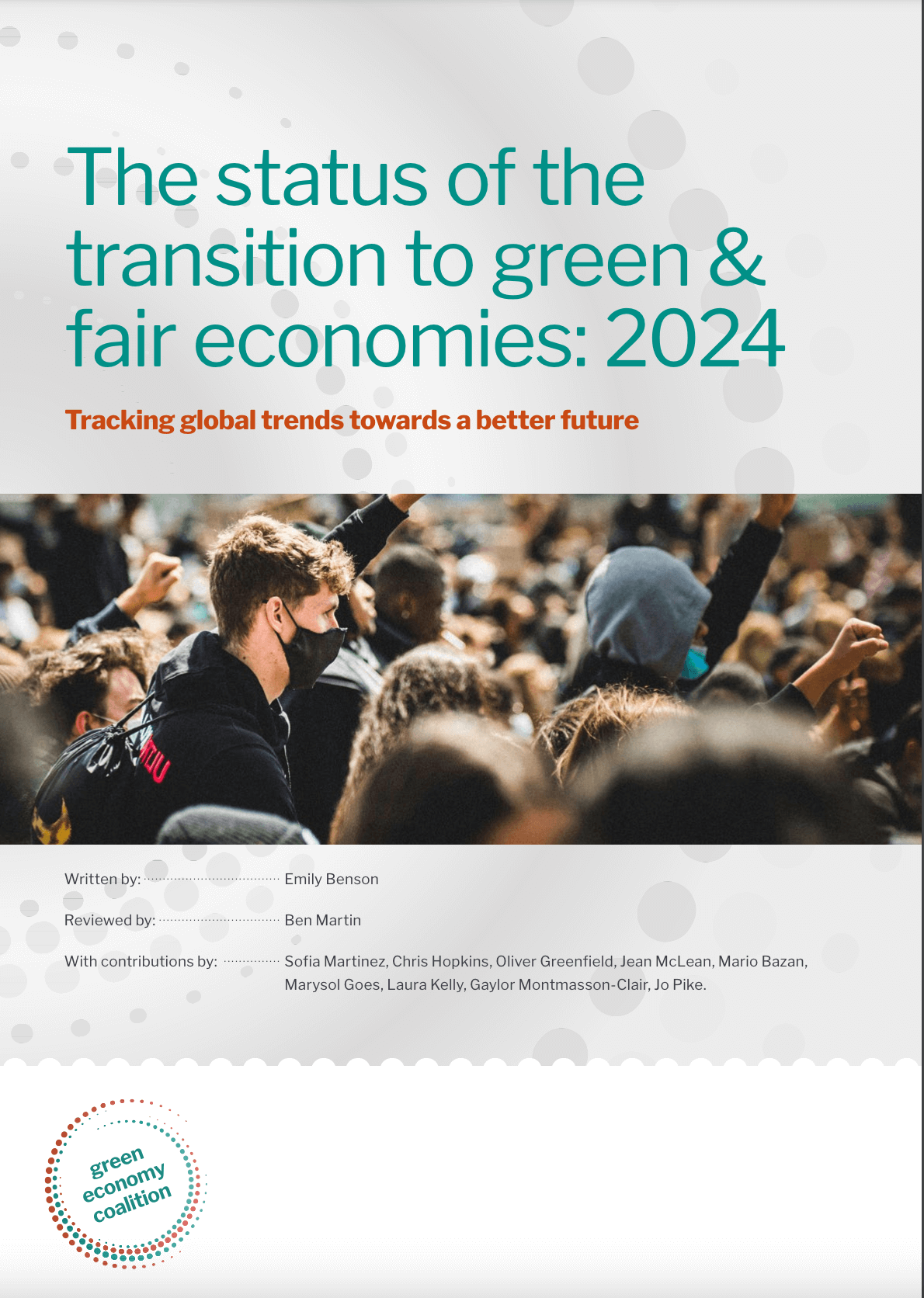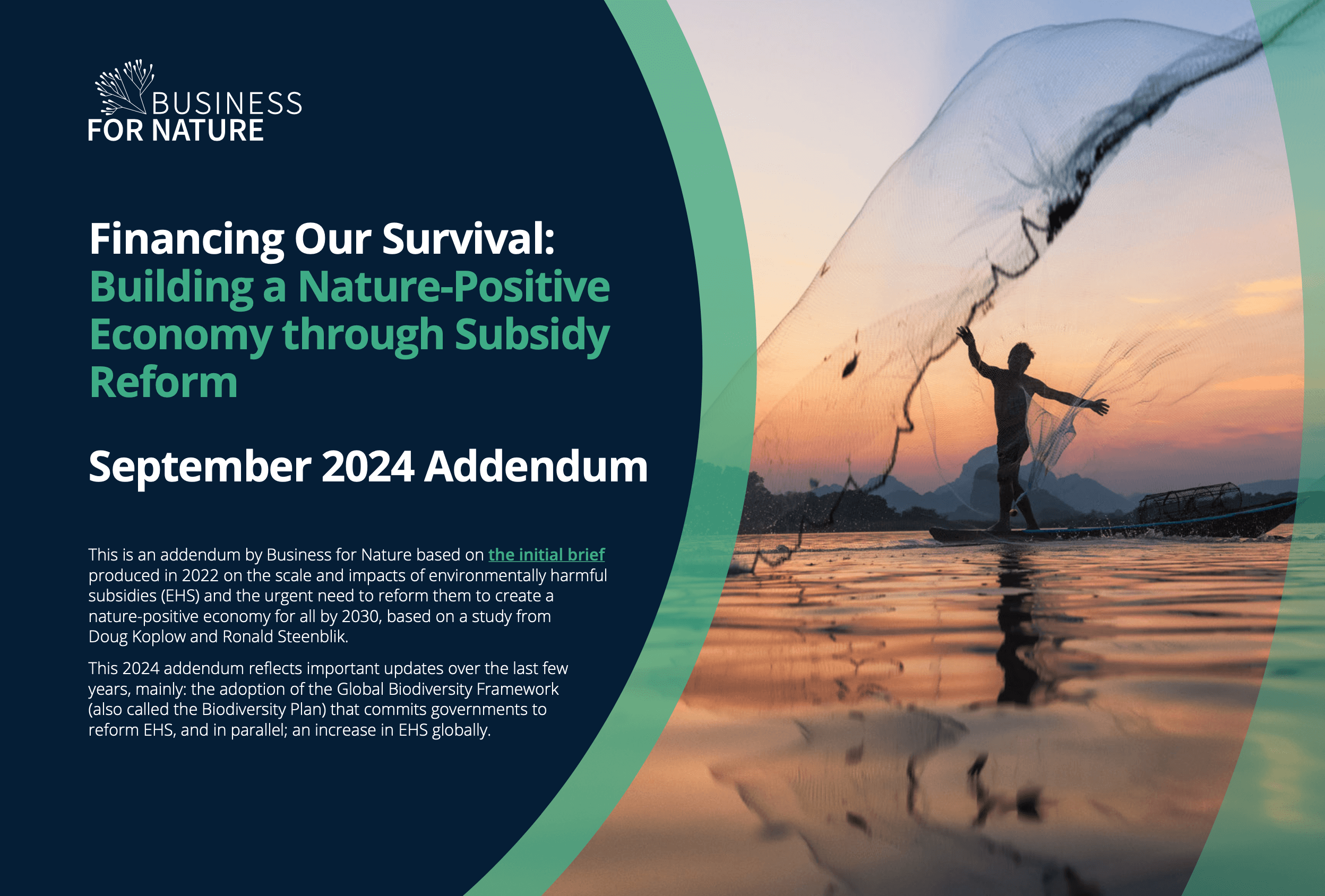Financing Our Survival: Building a Nature-Positive Economy through Subsidy Reform
Detalles
| New research by Business for Nature shows that environmentally harmful subsidies (SDMs) are subsidies or incentives that unintentionally encourage unsustainable production or carbon-intensive consumption, the depletion of natural resources, or the degradation of global ecosystems. In Target 18 of the Global Biodiversity Framework (GBF), also called the Biodiversity Plan, governments committed to identify all environmentally harmful subsidies by 2025 and to reform them by 2030, including by increasing positive incentives. Recent research shows that by 2024, USD 2.6 trillion will be spent per year on SDMs, equivalent to 2.5% of global GDP. These estimates have increased by $800 billion since 2022. Radical action and collaboration are needed. While subsidy reform is a complex challenge, it presents a wealth of opportunities for governments, businesses, and investors, which can lead to resilient economies. Environment, health and safety distort market prices, resource allocation and investment decisions, contribute to unfair competition, create reputational risks and ultimately prevent leading companies from delivering on their own commitments of nature. Environment, health and safety are a major obstacle to corporate action, as our economic system continues to encourage short-term profits to the detriment of long-term value creation, and incentivise and reward companies that overexploit nature rather than support a transition to sustainable practices and the creation of positive environmental impacts. To support governments in this difficult reform process, Business for Nature has outlined steps governments should take to reform harmful subsidies. There is a need for a growing call from the private sector for environmental, health and safety reform. Investors and companies have also started to take a stand and support the reform of environmental protection, health and safety: - Financial institutions representing a total assets under management of USD 7.2 trillion called on G20 ministers to reform their agricultural subsidies. 260 companies, representing more than $1.6 trillion in global annual revenue, urged governments to boost clean energy and phase out fossil fuels. More than 180 companies, representing a combined revenue of $1.2, are urging governments to align the entire financial flow with nature-positive outcomes. Companies also have a role to play in understanding their own dependence on the environment, health and safety and in working with governments to ensure the success of reforms. |
Recursos relacionados

The status of the transition to green & fair economies: 2024
In light of the current interconnected crises, and with only six years to go until the deadline to achieve the…
EU Deforestation Regulation: Exploring the latest interpretations and updates
During this webinar, an in-depth exploration of the latest interpretations and updates around the EU Deforestation Regulation (EUDR) was offered.

ESRS and nature. What will the reporting standards require?
In recent times we have been experiencing great progress in the European Union in terms of reporting non-financial information of…


